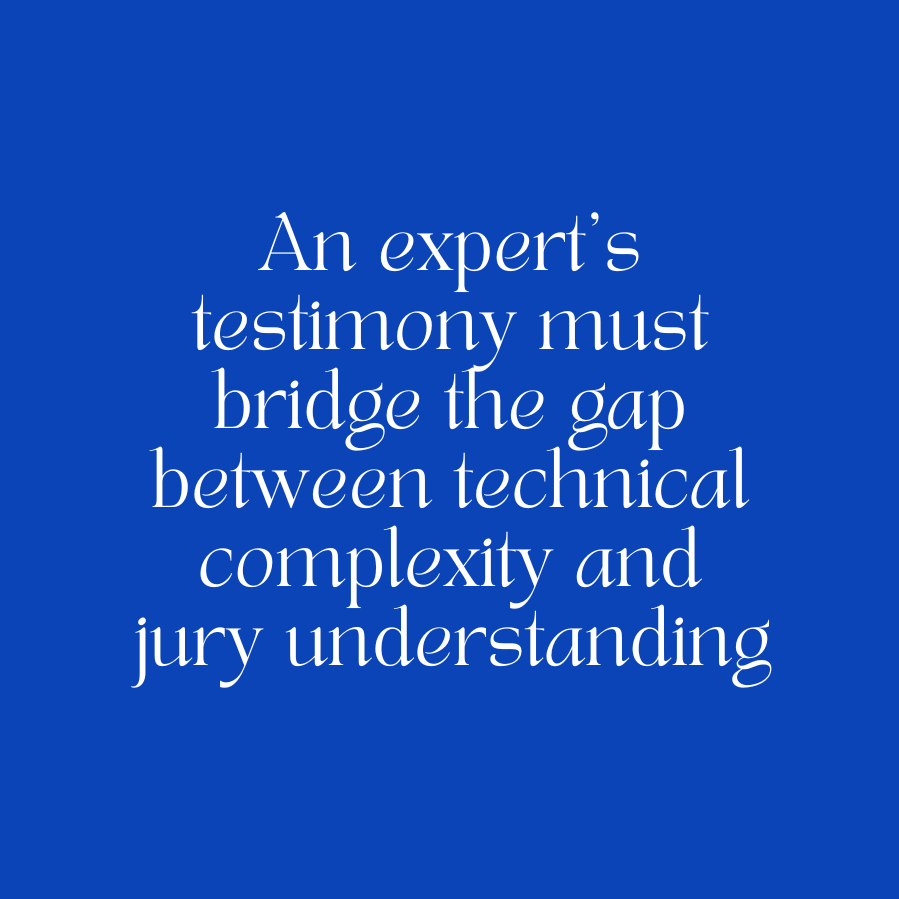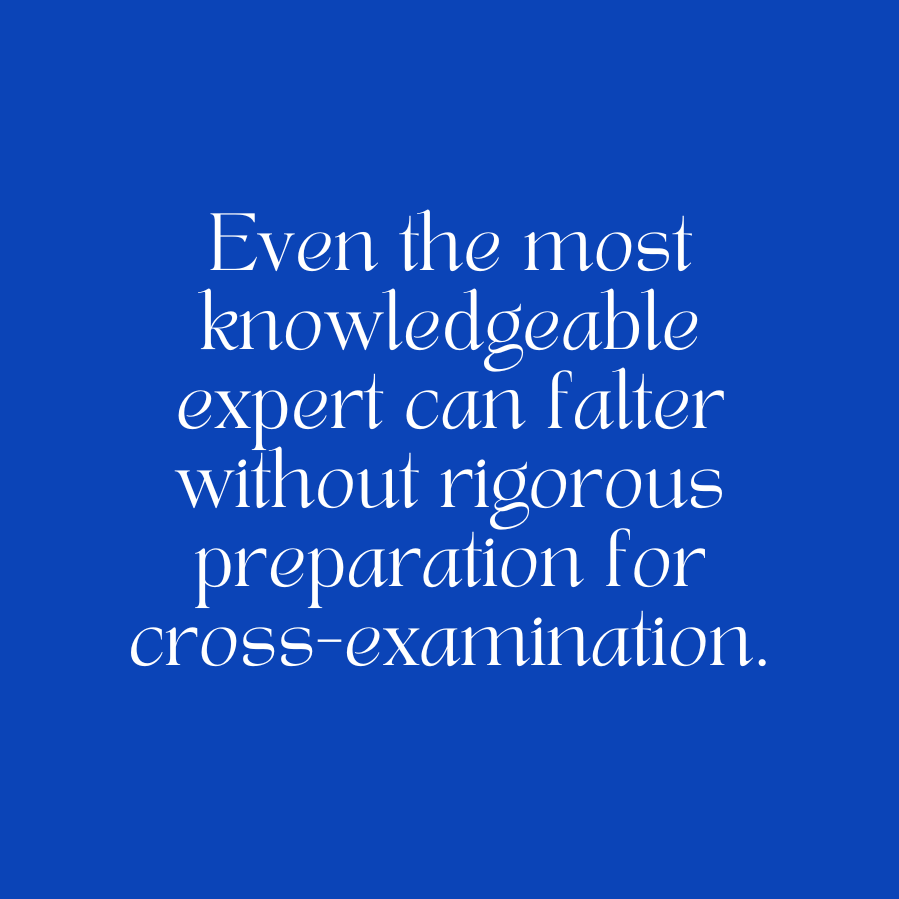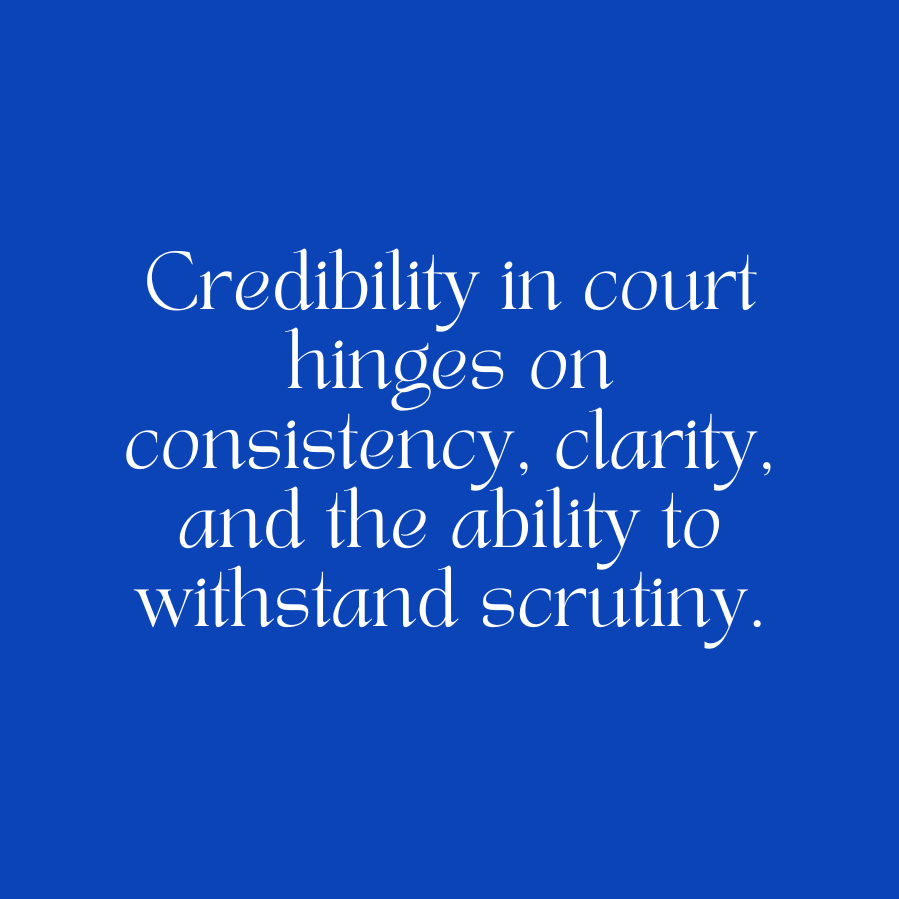Expert Witness Testimony Best Practices
Elevating Courtroom Testimony
Imagine the weight of your case hanging on a single expert’s ability to deliver credible, clear testimony in court. Every attorney understands the critical importance of expert witnesses, but not all experts excel when it comes to testimony. Miscommunication, overconfidence, or lack of preparation can jeopardize your case. This guide to expert witness testimony best practices explores how to ensure your expert witness delivers powerful, effective expert witness testimony that resonates with judges and juries.
Why Expert Witness Testimony Is Vital
Bridging Complex Expertise with Legal Strategy
Expert witnesses provide a vital link between complex technical knowledge and the legal arguments attorneys must make. From explaining intricate financial data to decoding scientific analyses, their role is pivotal in swaying opinions in court.
Common Pitfalls in Courtroom Testimony
Even highly qualified experts can falter in court due to:
Overstepping their area of expertise.

Struggling to simplify complex concepts.
Cracking under intense cross-examination.
Addressing these challenges requires preparation and adherence to proven best practices.
Best Practices for Expert Witness Testimony
1. Selecting the Right Expert Witness
The foundation of strong testimony begins with choosing the right expert. Look for:
Relevant Experience: Ensure the expert’s credentials align with the case’s technical demands.
Litigation Background: Prior experience in depositions and trials ensures courtroom readiness.
Communication Skills: Experts must articulate complex ideas effectively for lay audiences.
2. Defining Clear Roles and Objectives
Set clear expectations and ensure the expert:
Understands the case strategy.
Knows the boundaries of their testimony.
Adheres to impartiality and professionalism.
3. Preparing for Testimony
Preparation can make or break an expert’s courtroom performance. Steps include:
Case Familiarity: Ensure the expert understands all relevant case materials.
Mock Cross-Examination: Practice sessions reveal weaknesses and help refine responses.

Focus on Key Points: Prioritize essential elements to avoid overloading the jury with unnecessary details.
4. Ensuring Methodological Integrity
Courts demand that expert testimony is rooted in reliable, well-documented methods. To meet these expectations, experts must:
Use widely accepted practices in their field.
Clearly outline their methodology and its relevance to the case.
Avoid speculative or unsupported conclusions.
5. Communication Skills Training
Effective communication is a hallmark of successful expert testimony. Help your expert:
Translate technical jargon into layman’s terms.
Use visuals and examples to enhance understanding.
Maintain a confident and approachable demeanor.
Lessons from Real-World Cases
A Case Study: When Expert Witness Testimony Falls Short
In one case, an economic expert struggled to defend their analysis during cross-examination due to methodological inconsistencies. The opposing counsel exposed weaknesses in their assumptions, leading to the testimony’s exclusion and a weakened case.

Takeaway: This scenario highlights the importance of selecting experts with both technical rigor and courtroom composure.
Leveraging Expert Witness Services
The Value of Professional Support
Services like ExpertConnect Litigation Support streamline the expert selection process by offering:
Pre-vetted Experts: Gain access to professionals with proven courtroom experience.
Specialized Expertise: Match experts to niche areas of law and technical fields.
Efficiency: Save time by narrowing the search to the most qualified candidates.
Why Choose Expert Witness Services?
Expert witness services provide:
A curated network of experts for quick access.
Guidance to avoid common pitfalls in expert preparation.
Cost-effective solutions to fit various litigation budgets.
Practical Tips for Attorneys
Collaborate Closely with Your Expert
Frequent communication ensures alignment. Attorneys should:
Share key updates and case strategies.
Conduct regular preparation sessions.
Anticipate and address potential challenges together.
Address Weaknesses Early
Identify potential vulnerabilities in your expert’s testimony during mock trials. Proactively addressing these issues strengthens their confidence and performance.
Invest in Practice and Refinement
Continuous refinement through feedback and preparation boosts the expert’s credibility, clarity, and composure.
Conclusion: Strengthening Your Case with Expert Witness Testimony
The impact of expert witness testimony on litigation outcomes cannot be overstated. By following these best practices—selecting the right expert, preparing thoroughly, and leveraging support services—attorneys can ensure their expert delivers testimony that bolsters their case and withstands scrutiny.
For attorneys seeking reliable, vetted experts, ExpertConnect Litigation Support offers unmatched resources. Visit their website today, which uses expert witness testimony best practices in its screening to find the ideal expert for your next case and elevate your expert witness testimony litigation strategy.